Legend of the Mountain (1979)
Directed by: King Hu
Written by: Lin Chung
Starring: Chun Shih, Feng Hsu, Hui Lou Chen, Sylvia Chang
AKA SHAN ZHONG ZHUAN QI
China
AVAILABLE ON DUAL FORMAT BLU-RAY AND DVD: 19th March, from EUREKA ENTERTAINMENT
RUNNING TIME: 191 mins
REVIEWED BY: Dr Lenera, Official HCF Critic
Ho Qingyun is an underachieving scholar who agrees to painstakingly copy a Buddhist sutra solely for the money. Needing a place to concentrate while he works, he heads for a sparsely populated village that is also now a demilitarized zone due to a recent uprising. Only a few people are there, including secretary to the general Tsui, his crazy servant Chang, a bizarre old lady named Mrs. Wang, her beautiful daughter Melody, and a maid named Qing. After a heavy night of drinking combined with the hypnotic drumming of Melody, Ho wakes up to find he has slept with her and promised to marry her though he has no memory of this – but is she really human? – and why does that lama keep hanging around?….
Reduced to its simplest level a wuxia film which replaces the martial arts with duels of magic [and even they tend to be quite restrained], Legend Of The Mountain certainly isn’t a film for the impatient viewer, spending as much time on showcasing the beauty of nature as it does on its story, while it opts to tell the latter in as long winded a fashion as possible, yet fails to answer some of the questions a viewer may have. And yet, as long as you’re game, its languorous, contemplative mood can make for a thoroughly absorbing watch with, as with director King Hu’s masterpiece A Touch Of Zen, some spiritual elements which are there if you want them to be but are not at all emphsised so you can totally ignore them if you want and still fully appreciate the picture. And it certainly does possess excitement, even a subdued horror element – in fact this film is really the forerunner of all those Hong Kong movies where dippy scholars fell in love with deadly female ghosts, the most famous being probably A Chinese Ghost Story.
It was made during a bad period in Hu’s career, A Touch Of Zen and his two follow-up films having flopped and the filmmaker having trouble setting up projects. However, he heard of an offer by the Korean government to give tax breaks to anybody who wanted to film in the country as long as some Korean cast and crew were used – as long as not one but two movies resulted. So Hu made the very Buddhist-themed heist movie [honestly] Raining in the Mountain which he’d been trying to get off the ground for some time, then followed it immediately with Legend Of The Mountain, using much of the same cast, crew and locations to save money. The inspiration was Strange Stories From A Chinese Studio by Pu Songling, a collection of ghost tales with Hu taking especially from A Cave Full Of Ghosts In The West Mountain. Unusually the script wasn’t written by Hu himself, but his wife Lin Chung. Unfortunately, as with A Touch Of Zen, its great length was thought to be un-commercial, but this tine, instead of being released it in two parts, it was reduced to 112 minutes, losing over an hour, though it’s said that Hu himself supervised the edits and supposedly the film does come off fine in this shorter version. But it was still a box office failure and was seen only very rarely overseas, while the uncut version wasn’t seen until 2007 when it turned up at a film festival where it was expected the short version would be the cut shown. Early this year it got a limited theatrical release in the US.
Breathtaking shots of the Korean countryside, of flowers, waterfalls and mountains open the film, and you’d better like them as you’ll see plenty more of this kind of thing throughout. Immediately we’re told that nature is going to be a major theme, that our characters are going to constantly be informed and dwarfed by what is around them. Our hero Ho Qingyun goes to collect the sutra he’s asked to copy, then journeys to where he’s decided to do the job. Most films would probably cut straight to him arriving at his destination, or just have a few shots of him travelling before he gets there. I wouldn’t be surprised if the 112 minute version cuts most or all of this out, and there’s certainly an argument for cutting to the chase, especially when the plot is in no way being advanced. However, Hu chooses to show him traveling for some time, sometimes stopping to ask people along the way, because he wants us to get a sense of the distance he travels as well as show us the natural world which we’ve already been told will be a prominent part of things. Cinematographer Henry Chan gives us some of the most awe-inspiring outdoor shots I’ve seen in some time, notably a simply incredible view of dry ice rising from a river. Frankly I was engrossed in all this, even when Ho finally completes his journey and wanders around but, finding nobody about except a half-seen glimpse of somebody running, has to spend the night outdoors. Glimpses of a white-clad figure who mysteriously disappears ought to warn Ho that he’s entered a rather different world than the one he left, but of course he decides to stay. He’s shown around and then treated to a meal, and even I begun to hope for things to speed up a little here, and they do, because Ho gets very drunk and wakes up having seemingly spent the night with the pretty Melody and promised to marry her.
Being a decent sort, Ho does indeed wed the girl, even though something already doesn’t seem quite right with her, nor with her mother or the bonkers old servant Chang. Hu doesn’t bother to keep her true nature much of a secret, showing her casting spells behind Ho’s back and talking with others about this sutra, so that when Melody’s father Tsui gets drunk himself and warns Ho of Melody’s intentions, it’s no surprise and you wonder what the point of the scene was. It seems that Melody not only has magic powers but could be a ghost or demon [I don’t think that a spoiler warning is necessary for this], and she and some of the other occupants of the house want this sutra for its magical properties, only they have to wait for Ho to copy it all, then have to read it 180 times and use his prayer beads for whatever nefarious purposes [which aren’t spelt out] they have in mind to work. Ho is really pretty dumb, but then again everybody seems to like to keep him in the dark about stuff. Even at the end he doesn’t seem to have understood everything. He soon attains another love interest in the form of innkeeper’s daughter Cloud, but is she all she seems to be? The forces of evil are opposed by a lama and a Taoist priest and, after a skirmish or two in the first two thirds, the final hour does provide the expected thrills, except that combat is carried out with spells and percussion musical instruments rather than hands, feet, staffs or swords, though we still get a bit of jumping about on wires by some of the participants. You wouldn’t believe how tense ‘duels’ with drums and cymbals could be, though the final act is bogged down a bit by lengthy explanatory flashbacks that still don’t explain everything, and things do seem to end a few times before they actually do. Perhaps here is one area where some pruning may have helped so that we just get the essentials, and indeed it seems that the shorter edit did remove much of this material, while a knowledge of Buddhism and Chinese folklore could be useful in understanding some of the more convoluted elements.
Hu really does adore the zoom lens, it’s used with a frequency even Jess Franco would balk at, though the shots are always achieved very well and are usually lovely to look at. Special effects are kept simple, with smoke, explosions, a strange portal where characters can watch past events like they’re watching a movie, and sharp edits making up most of the visual magic on display. Hu wisely realised that he didn’t have the money to show more than this. He constantly likes to remind us that everything is connected, but his inability to resist providing montages of the splendour of the local flora and fauna, sometimes in the middle of important scenes, does on a few occasions get the better of him, including a bizarre and to be honest rather funny sex scene where close-ups of a hand stroking a leg are inter-cut with various euphemisms for the birds and the bees for what seems like forever. It’s hard to see how Hu would have expected people not to chuckle at it, though there are comedic moments elsewhere and a feeling that we’re not intended to take it all too seriously even though his film sometimes seems to be about the essential meaninglessness of human existence in the grand scheme of nature – which is as downbeat and negative theme as can be. The final scene, which I won’t reveal, is either just depressing or adding a nightmarish [though often used] twists to proceedings.
Chun Shih conveys Hu’s ‘everyman’ status without resorting to excessive bumbling, though the character isn’t very involving. Maybe that’s the point. It’s Feng Shu, Hu’s favourite actress, as Melody who makes the strongest impression, but then she’s probably the most interesting character anyway, a villain whom you end up understanding, at least partially. Overall the acting is less melodramatic than usual for this kind of film. Score composer Ta Chiang Wu’s grand main theme doesn’t work too well when employed for both of Ho’s love affairs, but he uses percussion very well in places. So ambitious that one can forgive its stumbles, and probably its director’s most personal project, Legend Of The Mountain attempts to fuse entertainment and art with often beautiful results, and can’t really be compared to any western equivalent, it’s quite unique, especially considering the lack of actual combat. I’m surprised that more films haven’t followed its lead. Yes, you could probably tell its story at half the length, but I think the movie would then lose much of its richness.
Rating: 









Legend Of The Mountain comes to Blu-ray with a great filmic look combined with that Blu-ray depth. As with quite a few other old Chinese films, a few parts are slightly faded and some bit of the soundtrack sound slightly distorted, due to the poor quality of the original elements and the music recording respectively. While not jam-packed with special features, Eureka have provided two new supplements in which we hear from those always welcome experts on Asian cinema David Cairns and Tony Ryans. Cairns takes us through the film for 21 minutes examining certain details, aspects and scenes, while Ryans, who actually met Hu on several occasions, gives us 25 minutes of mostly background information, including an overview of Hu’s career, how the film was set up, and some details about the short version, including how awful the subtitles for it are. Together we get enough information and context to render an audio commentary inessential.
If you fancy a variation on the usual martial arts-dominated effort, or even want to just admire some of the loveliest outdoor photography you may ever see, Eureka’s Blu-ray of Legend Of The Mountain comes highly recommended by the Doc.
DETAILS
*Limited Edition O-Card (first print run only)
*1080p presentation of the film on Blu-ray, with a progressive encode on the DVD
*Uncompressed LPCM mono audio
*Newly translated English subtitles
*A new video essay by critic and filmmaker David Cairns
*A new interview with Asian cinema expert Tony Rayns
*Trailer
*A collector’s booklet featuring an abundance of archival writing and imagery

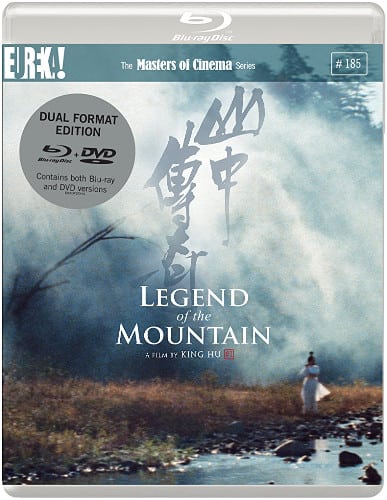
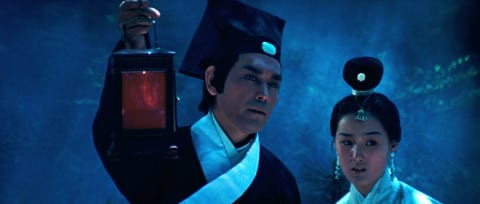
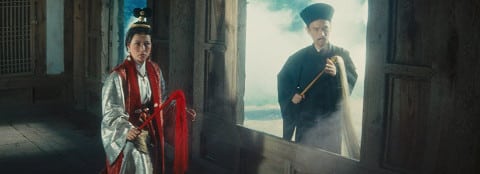

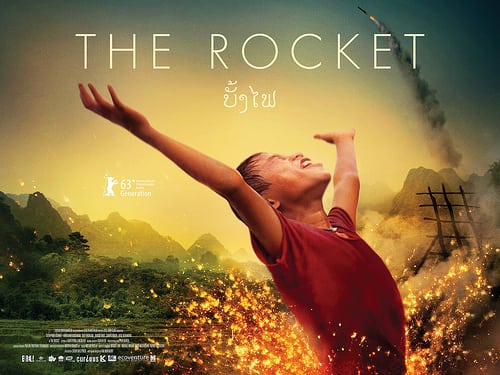
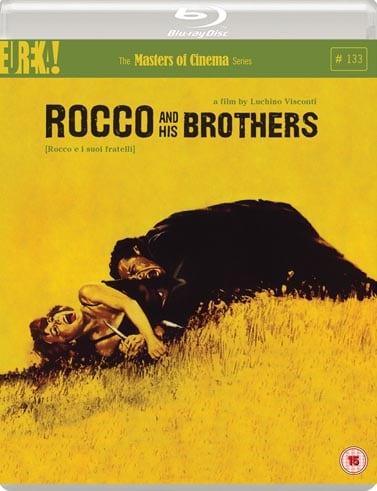
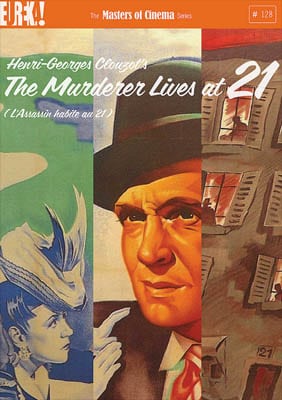
Be the first to comment